
Viking Names
Snort
Snǫrtr was originally a byname similar in meaning to Norwegian snerting ‘quick fellow’. It is fairly common as a personal name in Iceland. The genitive singular form of the name, Snartar, is the first element in Snarford, Lincolnshire.
Read More
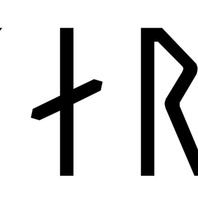
Viking Names
Sumarlidi
Sumarliði is originally a byname meaning ‘summer-traveller’. Although it has also been suggested that it is a variation on Vetrliði ‘a bear in its second year’, the close association of the name with the Viking diaspora supports the ‘summer-traveller’ meaning. These names likely arose in the Atlantic islands as there is one instance of Sumarliði from the early tenth century attributed to a man of Scottish birth, and several from the time of settlement in Iceland (c. 870-930). It does not appear until late in Norway, but there are several instances after c. 1320. The name is found in runic coin legends as the name of a moneyer operating in the Danish town of Lund between 1065 and 1075 – many of the moneyers in Lund actually came from England, where the name is relatively common. Sumarliði is also found in a place-name in Normandy. Sumarliði is the first element in three instances of the place-name Somerby, and one of Somersby, Lincolnshire, and the name is also frequently reported independently as a personal name in Domesday Book for Lincolnshire.
Read More
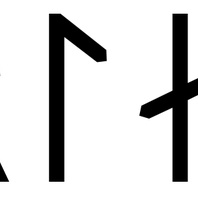
Viking Names
Thorlak
The male name Þorlákr is recorded in a number of Scandinavian runic inscriptions. It is rare in England but is possibly recorded in a minor name Thurlowbooth in Crich, Derbyshire. There is a further East Midlands connection, as its best-known bearer, the Icelandic bishop Þorlákr, studied in Lincoln in the twelfth century.
Read More

Viking Names
Broddi
Broddi, the first element in the place-name Broadholme, Lincolnshire, is otherwise mainly recorded in Iceland.
Read More

Viking Names
Thorarna
Þórarna is a Old Norse compound name with the first element Þór-, from the name of the god Þórr ‘Thor’ (very common in both male and female names), combined with -arna, the feminine form of -arinn, either from arinn ‘hearth’ or more probably the postulated element *arin related to ǫrn ‘eagle’. A couple of instances of Þórarna are recorded in Norway with one of the earliest being from the ninth century. The name is frequent in Iceland evidenced by the multiple mentions in Landnámabók ‘The Book of Settlements’, a quasi-historical text which recounts the settlement of Iceland. Þórarna is not attested in Denmark or Sweden. There is a form of the name found in the Yorkshire Domesday, but it may alternatively represent the male name Þórormr.
Read More
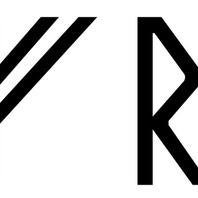
Viking Names
Alfrun
Alfrún was recorded in West Scandinavia (Norway and Iceland) as a mythological name. It is an Old Norse compound formed from the elements Alf- ‘elf’ and –rún ‘confidante’. It has been suggested that when used in a personal name it has the sense of ‘secret, wisdom’, associated with rúnar ‘runes’. There may be one attestation of Alfrún in a medieval church document from Lincolnshire. However, the form may alternatively represent the Old English female personal name, Ælfrūn.
Read More

Viking Names
Bui
An original byname Búi, from búa ‘to dwell’, was found in Norway and Iceland as a personal name and byname, but is rare there. In the form Bōi, later Bo, it is very common in Denmark and Sweden, where it appears in several runic inscriptions as bui and is found in the Latin forms Boecius and Boetius. It is possibly found in three Normandy place-names and it is potentially the first element in Boothorpe, Leicestershire.
Read More
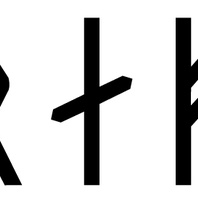
Viking Names
Hrafn
The Old Norse male name Hrafn is found throughout Scandinavia, but is particularly common in Iceland. It means ‘raven’ and belongs to a common group of male names which refer to animals, such as Arn ‘eagle’, Björn ‘bear’, Ulfr ‘wolf’. It is frequently compounded in personal names with other elements, as seen in the Old Norse personal name Hrafnkell, and others. When found in place-names, it is possible that it represents either the Old Norse common noun hrafn ‘raven’ or the Old English common noun hræfn ‘raven’, rather than a personal name. It may also represent a possible Old English personal name Hræfn. Hrafn is seen in the first element of the minor place name Ranskill in the Bassetlaw Wapentake of Nottinghamshire.
Read More
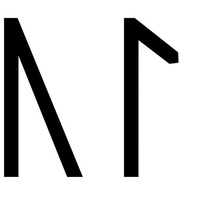
Viking Names
Kol
Kolr is a common male personal name in Norway and Iceland. It is probably related to the Old Norse noun kol ‘coal’ and is attested as the first element in the hybrid name Colston (Bassett) and (Car) Colston in Nottinghamshire. It is also attested as the first element in other Old Norse names, such as Kolbeinn.
Read More
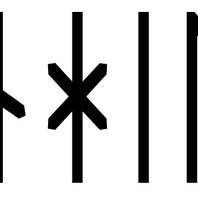
Viking Names
Gunnhild
Gunnhildr is a very common female name throughout the Viking world. In England, the name has a particularly wide geographical distribution that extends beyond the Danelaw and beyond the Viking Age. Its popularity was most likely influenced by its use in the Danish royal family in the eleventh century, when it was borne by an aunt, a daughter and a niece of King Cnut. The name is also the first element of the place-name Gunthorpe, Nottinghamshire.
Read More
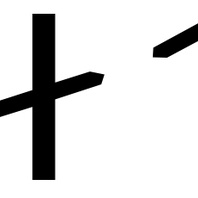
Viking Names
Kati
Káti is a fairly common male personal name in the Viking world, occurring in the inscriptions on at least six Swedish rune-stones. It is the first element in the place-name Caythorpe, Nottinghamshire. There are also several place-names in Lincolnshire which contain this name, including Cadeby and Caythorpe. The name may originally have been a nickname, as it means ‘the cheerful one’.
